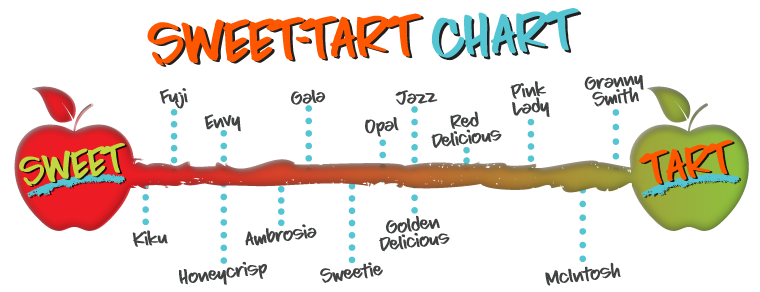Crisp Apples Bring Thoughts of Fall
TEXARKANA, Ark. –
When I see caramel apples at the supermarket, I know fall is here. I can imagine the sound that biting into a perfectly crisp caramel apple or even a plain one makes. Lucky for us, apples are available year-round in supermarkets across the area, or if you are lucky enough, you can visit an orchard and pick your own.
Flavors range from sweet to tart and can be used for a variety of purposes. So pick up some apples and add a touch of autumn to your salads, snacks, sandwiches, main dishes and desserts.
When selecting apples, look for fresh-smelling fruit with blemish-free skins. Choose those that are firm, crisp, and well colored. An apple with brown streaks on the skins (called scald) does not affect the quality.
Store apples in a dry, cool place for up to 1 week. For longer storage, refrigerate in a plastic bag for 4 to 6 weeks. If you store them in the fridge, keep them away from lettuce and other delicate produce, apples cause fruits and vegetables to ripen and/or spoil faster.
Apples are a good source of both soluble and insoluble fiber. The soluble fiber is thought to help prevent cholesterol buildup in the lining of blood vessel walls. While the insoluble fiber in apples, provides bulk in the intestinal tract, holding water to cleanse and move food freely and quickly through the digestive tract.
Although it was once suggested to peel your apples before eating, the thought process has changed. Almost half of the vitamin C content is found just under the skin of the apple, and peeling it removes those much-needed vitamins and minerals. Eating the peeling or skin of the apple also increases the insoluble fiber content, and makes you feel fuller.
Apples come in an assortment of colors and textures, in flavors tart to sweet. There are thousands of varieties to choose from. Eight of the more popular varieties include: Red Delicious: Named when a nurseryman in 1894 exclaimed, “My that’s delicious!” Golden Delicious, Red Rome (Rome Beauty), Winesap, Granny Smith, McIntosh, Jonathan, and Gala.
Select types of apples based on how they will be used: raw (for eating out of hand and adding to salads); cooked (for applesauce, pies and other desserts); or baked whole.
If you are interested in learning more about apples, please contact me at the University of Arkansas Cooperative Extension Service located in the Miller County Courthouse at 400 Laurel, call 870-779-3609, or e-mail me at chadley@uada.edu. We have a wonderful publication that we will share with you.
Tried and True Tip:
If you are lucky enough to find apples at a farmers market or orchard, it is helpful to know that a peck of apples weighs 10.5 pounds and a bushel of apples weighs about 42 pounds.
By Carla Haley-Hadley
County Extension Agent - FCS
The Cooperative Extension Service
U of A System Division of Agriculture
Media Contact: Carla Haley-Hadley
County Extension Agent - FCS
U of A Division of Agriculture
Cooperative Extension Service
400 Laurel Street, Suite 215 Texarkana AR 71854
(870) 779-3609
chadley@uada.edu
The Arkansas Cooperative Extension Service is an equal opportunity institution. If
you require a reasonable accommodation to participate or need materials in another
format, please contact your County Extension office (or other appropriate office)
as soon as possible. Dial 711 for Arkansas Relay.
Pursuant to 7 CFR § 15.3, the University of Arkansas System Division of Agriculture
offers all its Extension and Research programs and services (including employment)
without regard to race, color, sex, national origin, religion, age, disability, marital
or veteran status, genetic information, sexual preference, pregnancy or any other
legally protected status, and is an equal opportunity institution.
